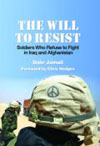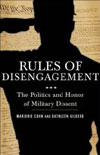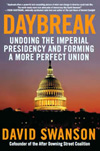Church Blogging Church Visit #2
On Sunday, October 21, Eleanor Cutignola, Gayle Dunkelberger, Margaret Eberle and I visited St. Augustine Roman Catholic Church in Ossining, New York in our new local campaign to encourage clergy to begin to speak out for a complete withdrawal of U.S. forces from Iraq and against attacking Iran.
We attended the 10 a.m. mass, which was being conducted by the Rev. Monsignor Hilary C. Franco, 75. Monsignor Franco’s career has included 24 years at the Vatican as an official of the Congregation of the Clergy, work he left in 1994 for his post as pastor at St. Augustine.
There were about 300 people of all ages in the large, modern, cathedral-style church that sits idlyllically on a broad glade that slopes gently to the eastern bank of the Hudson River. It was a beautiful, warm, sunny morning highlighted by the reds and yellows of the surrounding trees.
The congregation was largely white and middle-class, with several African-American worshippers and a signficant Hispanic minority. The church was full, and busy with children’s voices and murmuring as the service moved through singing and Bible readings toward the morning’s homily (sermon).
As Monsignor Franco was a few sentences into the homily, in which a story about “a rich man” was part of his introduction, we stood up and walked forward on the right side of the church to a point just behind the first few rows of pews holding a banner that read:
3,800+ U.S. Soldiers Killed - Thousands Wounded
1 Million Iraqis Killed - Millions Displaced
Much of Iraq and Its Culture Have Been DESTROYED
The U.S. has spent $456 billion - $3 Billion from Westchester (County)
As we began to move slowly toward the back of the church, a woman’s voice, faint but clear, pierced the silence: “I support you.”
Instantly there were several loud responses to her that can be summed up as “This is no place for that”. Immediately there was applause, which we assumed was for these speakers.
We walked into the foyer of the church, and one of the ushers closed large glass doors, separatiug us from the church. We positioned ourselves so that the monsignor could see the banner through the doors as he spoke. The homily came to us over a loudspeaker with the message: give generously to a fund-raising drive for the church and the diocese.
As the homily continued, a middle-aged, balding man carrying a child came over to us and said we had no business bringing the banner into the church. I think he may have said it was “shameful”.
Shortly, Rev. Steven A. DeMartino, a deacon, asked us to move outside the church because the foyer doubled as a play area for the children who were being excused from the remainder of the service.
We went outside and held the banner facing the main portal to the church so that people would have to encounter it, and us, on their way out.
One of the first reactions from the departing parishioners was simply in the form of a broad smile and a handshake from a Maryknoll Brother whom I have know for a number of years.
Several parishioners who followed him said we were wrong to bring the banner into church. A shortish man with a beard came toward us grim-faced, and as he passed me he said: “Are you holier than I am?” His wife cautioned him in a hushed voice: “Bob!” Then he shouted at us over his shoulder: “Go to Hell.”
A woman who overheard this called to him: “You just got out of church, and you call yourself a Christian?”
Then a man came over, read the banner and thanked us. As he walked away, he said to another man: “I more than agree with them,” apparently answering a question about what he thought of what we were doing.
Another man came out giving us a thumbs up, and another told me I was a “Communist”.
Another of them, becoming more enflamed, stepped aside and said he was calling the police “now”, not waiting for our next appearance. At that point another man, whom I think was the usher who closed the doors to the church after we went into the foyer, came over to me, grabbed my corner of the banner and ripped it out of my hands.
We had agreed to offer no argument to anyone and to say simply “Thank you” to all comments. But during this encounter, Eleanor and Gayle tried to engage the shouting men in conversation, which was futile.
After they had withdrawn, frustrated in not getting into a fight, a woman in her sixties asked some questions about the war and thanked us for coming; but, she said, perhaps we shouldn’t have gone into the church with the banner. Nevertheless, she thanked us again for coming.
Several more men thanked us, and it was becoming apparent that we had received expressions of support from far more men than women and that women had been far less willing than men to express their opinions, pro or con.
After most parishioners had left church, Monsignor Franco walked past us in his black clerical street clothes, sporting a short-sleeved shirt. A few feet beyond the banner, he paused, came back to read it and asked if the statistics were correct. We said they were, and he said it was a shame. But he showed no interest in conversation, walked over to his car and drove off.
A couple in their early thirties were the last to approach us, and the husband asked us why we were visiting the church and whether we were going to other churches. He thought we had an important message, he said, but perhaps it would be better received if we held the banner outside the church instead of going inside. We spoke briefly about the war, and his wife was not aware of information on the banner or the possibility that the U.S. might attack Iran, possibly with tactical nuclear weapons; she found that very disturbing.
As we were folding up the banner, the police arrived in the person of Ossining Town Police Officer Jason Fields, driving a police SUV. He asked if we were leaving, then said he was interested in politics and knew something about the war. There are many different political factions in Iraq, he continued, and how can the U.S. government expect to get them to agree if the two political parties in this country can’t agree? I asked him whether he wanted to join us in visiting churches, and he said his job did not permit him to get involved in demonstrations. I asked him about participating in union actions, and he said that was an exception.
The day after our visit, Margaret said that she had been reflecting on the experience and had decided that if we had just stood outside the church “these people wouldn’t even have looked at the banner.”
Note: Eleanor Cutignola, 77, drove 3 ½ hours, from Lake George New York to Westchester County, specifically to participate in the church visit. “When Margaret told me this (about the church visits campaign), it was like a breath of fresh air.”
________
On Sunday, October 21, 2007, I went to St. Augustine Roman Catholic Church in Ossining, New York. I was invited to join Margaret Eberle, Eleanor Cutignola and Nick Mottern in an ongoing outreach effort to encourage clergy to end their silence about the Iraq War.
I had some clues, but I did not presume to predict what would happen. I joined because I knew it was the right thing to do. I have a T-shirt that says “When we act we change ourselves and the world.” It is a push-the-envelope-act when four uninvited senior citizens walk to the front of a church as the homily begins with a large banner defining the tragedy of the Iraq War and asking: “Why the Silence?”
The T-shirt was right, there were dramatic responses pro and con, and we knew there would be a lot of dialogue around Sunday dinner tables. For myself, I realized more about the depth of emotion this issue can evoke, sometimes even evoking more violence.
The only thing I felt sure to predict was that we would repeatedly hear one phrase: “This is not the appropriate place”. I was correct, but that is because we hear it wherever and whenever we witness against the war. As usual we heard two versions repeatedly: 1. “You are wrong not to support your country, and this is not the appropriate place”; and 2. “I whole-heartedly agree, but this is not the appropriate place.”
The scenario I keep in my mind is that if there were gunmen outside the church about to shoot our children, appropriateness would go out the window. The war is “gunmen outside the church about to shoot our children”, figuratively and literally.
I understand that people value their history of proper breeding, of protocol, a sense of social graces and appropriateness. I also understand that there is a much, much larger picture here.
I am committed to inappropriateness.





